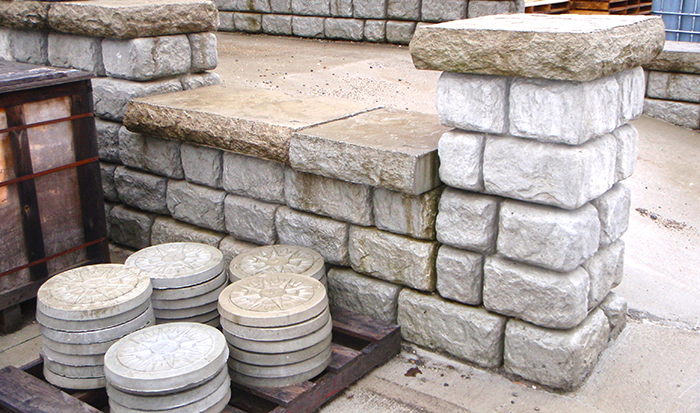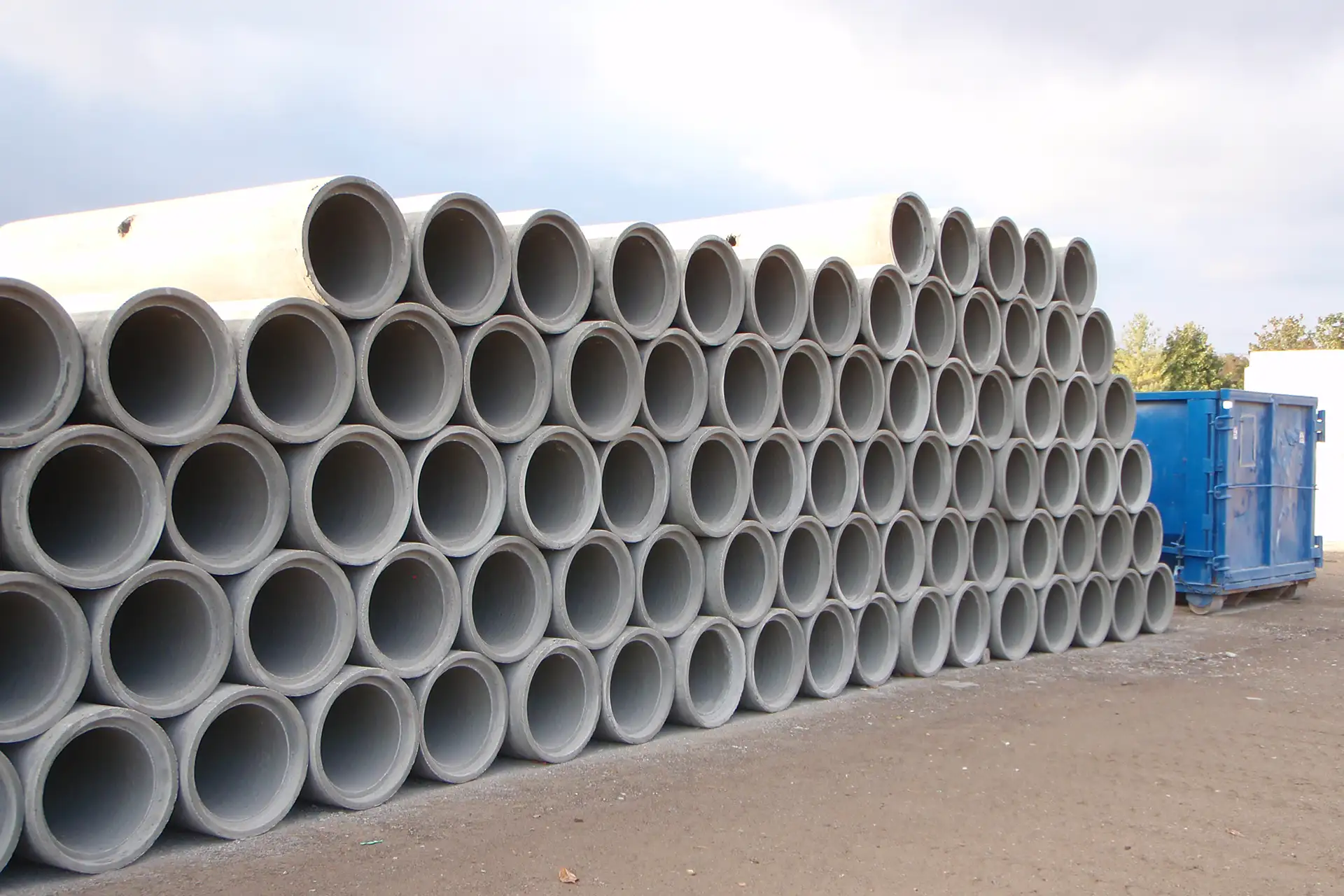Learn how precast concrete plants deal with environmental regulations compared to ready mix operations.
Environmental regulations can differ wildly from facility to facility, from industry to industry, and from state to state. When it comes to making concrete, no two facilities are the same, especially once you start looking at different types of concrete products.
We got a lot of concrete producers turning to us to ask us about things related to environmental compliance, and wondering if the regulations at their ready mix operation are similar, the same, or different, than the ones impacting their precast operation.
The answer? They kind of are! Let's dive in and discuss what's the same, and what's different, between precast concrete plants, and ready mix operations.
How does environmental compliance work at a precast concrete plant?
Of course. there are some specifics you have to address right out of the gate when comparing compliance items at any type of concrete plant.
Your concrete plant's location impacts environmental compliance.
For instance, if your ready mix operation is in Virginia, but your precast facility is in Maryland, then you can be guaranteed that your state-level environmental regulations will be different since... your facilities are in different states!
Between states, things like Tier II Reporting, Air Quality Permitting, and NPDES Stormwater Permits can vary quite a bit, even between similar operations. Even if you had two ready-mix plants (or two precast concrete plants, either way), just by being a few miles apart and across state lines, your environmental regulations are going to be extremely different.
Having said that, there are numerous Federal level environmental regulations that are going to impact your facility in largely the same manner, whether it's precast or ready-mix concrete you're producing. For example, an SPCC Plan is required across the United States, regardless of where your facility is located. The same goes for TRI Reporting, a Federal level type of EPCRA Reporting that you'll have to conduct whether you're running a central mix plant to making decorative precast concrete like you see below.
Regardless of the type of concrete you're producing, you may find our article The Top 5 Environmental Compliance Issues at Concrete Plants a helpful read.

Precast Concrete Plant Environmental Regulations
For those who are familiar with any concrete plant, you're probably thinking "wait a minute, there are definitely differences between my precast and ready mix operation!" And you're right! So let's get into them and discuss the various regulations impacting concrete plants.
NPDES Stormwater Permits are needed at ALL concrete plants.
Regardless of your product, you're going to need an NPDES stormwater permit at your operation. These are universal and are necessary at any kind of facility, not just concrete facilities. No exceptions, no differences. Everyone needs one.
Since we opened up shop in 1992, we've never successfully seen a precast or ready-mix concrete plant get out of the need for having an NPDES permit, no matter how great of a story you think you have. Regulators know your industry is covered, so don't expect them to give you any slack here.
What about process water discharges at concrete plants?
Here's a good illustration of the difference between the two.
Precast plants don't typically generate the volume of process water that a ready-mix plant does. Meaning, most precast plants (at least the ones we've worked at) typically don't need a process water permit. We try to get all our clients to stop discharging process water, as the regulations around it are a nightmare, and often way too complex and expensive to deal with. Most states simply won't allow you to discharge process water, and if they do, be prepared to be treated like you're discharging toxic waste!
Ready-mix concrete plants usually need SPCC Plans, while many precast concrete plants won't.
This Federal environmental regulation is applied across the board regardless of what you make or where you're located. I'm not just referring to concrete, but any product, at any location. From farms to schools to hospitals to data centers, SPCC Plans are required simply based on the amount of oil and/or petroleum stored on-site, that's it.
If you have over 1,320 gallons of petroleum or oil at your facility, you need an SPCC Plan. This includes anything down to 55-gallon drums, even if they're empty, halfway full, only used seasonally, etc. So precast or ready mix, your concrete plant, if it stores over 1,320 gallons of oil and/or petroleum, you need an SPCC Plan.
Air quality permits are required at precast concrete plants (and almost everywhere else).
Just like SPCC Plans, if your facility meets the (often basic) requirements for an Air Quality Permit, then you'll need one. Again, air quality permits are required at any facility if they meet certain criteria, and aren't usually tied to the type of industry you operate in.
Since air permits are often tied to processes, equipment, and storage considerations, whether you have a bag house to control cement dust or dust from something completely unrelated like grain for feed, if you need an air permit. Simply put, the industry doesn't matter. Again like SPCC Plans, whether it's a farm, school, data center, you name it, air quality permits apply.
EPCRA Reporting is (also) required virtually everywhere, precast concrete plants or otherwise.
This is a two parter, since there are two aspects of EPCRA Reporting that impact the concrete industry.
The first is Tier II Reporting, also called CRTK, Community Right-to-Know, or some variation thereof, all depending on where you're operation is located. You're going to need to do this regardless of your facility type, precast concrete or otherwise. This regulation has been around for some time, but we're finding it's being enforced more and more each year. Some common triggers we see for Tier II Reporting at any type of concrete facility are cement, sand, fuels, admixtures, form grease, acids, dyes, and other random things being reported. The other reason to conduct reporting is that it helps to keep your staff and community safe in case of an emergency. Perfect example - if the fire department has to show up to your facility because there's a fire, they'll access your Tier II Reporting information through their systems as they drive to your facility in order to determine what's on-site, what's a danger, and how to respond accordingly. That 10,000-gallon diesel fuel tank you have on-site? Yeah, they'll want to know about that. Put it this way, if you DON'T do Tier II Reporting, you're putting emergency responders at risk. I don't know about you, but I value the services these (oftentimes volunteer) responders provide, and submitting Tier II information helps to keep them and our community safe.
The second, much more complex version of EPCRA Reporting is TRI Reporting. Unlike keeping emergency responders safe, this is meant to inform the Federal government, your state, and local community about what you "pollute". I know what you're thinking - we don't pollute, so what is this?! Simply put, if you meet the reporting requirements, (and the precast industry often does), you need to be doing TRI Reporting. We've been involved in a few cases where producers have seen fines from the USEPA in the 6, 7, and 8-figure range because they weren't reporting when they should have been. TRI Reporting is nothing new, and it's nothing to mess around with. TRI Reporting at concrete plants is a serious concern, and lately the USEPA has been cracking down on producers big time. Some common things being reported on again are cement, fuels, sand, nitrates in admixtures, supplementary cementitious materials, and more.
Environmental Justice & Additionally Concerns at Precast Concrete Plants
Here's where things start to get really localized. Depending on where you're located, the community, how you operate, etc., you may have additional things to stay on top of. One thing that we are seeing coming down the pipeline is the concept of Environmental Justice, something which has the potential to put a lot of power into the hands of your local community. When it comes to things like issuing and renewing permits, the community may have a larger voice than ever before. If you're a bad actor in town, with a spotty track record of complaints, expect pushback from your community to the point where you may not get an air permit renewed. No renewal means no more operations. Something to keep on your radar, regardless of whether it's for precast or ready mix operations or any other industrial facility for that matter!

Environmental Regulations At Precast Plants Are Mostly The Same
Those are some of the major regulations at concrete plants, precast, ready mix, or otherwise, and as you can tell, they're largely the same. Precast plants might have their own spin on the application of the regulations, but the regulations are exactly the same as other types of industrial operations. There is virtually no difference in the regulations whether you're operating a ready mix, precast, brick, block, pipe, or other types of concrete plants.
And, just like any other type of industrial operation, failure to comply with regulations can carry stiff penalties, including significant fines. Pay extra attention to TRI Reporting, because like I said above, the fines can be extreme. We've seen the USEPA fine per plant, per year that reporting wasn't completed. Meaning, if you have 15 facilities that haven't completed TRI Reporting for the last 5 years, you could be looking at 75 violations. And, TRI Reporting fines are some of the largest possible fines the USEPA can give out (they top out around $50,000 per violation). Do the math. It's a money-making center for them, they know it, and are enforcing it.
Most environmental regulatory requirements aren't that difficult to live with, so it's just not worth risking it by ignoring the obvious environmental permit requirements that a precast concrete plant has.
Are you still on the fence about your environmental program? Not sure where to begin? Either click here to contact us, call us anytime at 888-RMA-0230, or send us an email at info@rmagreen.com to talk.












